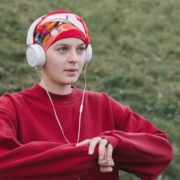Why The Atheists Are Right About Religious Discrimination In Australia
By: Akos Balogh
Are the majority of Atheists and other non-religious Aussies right when it comes to religious discrimination in Australia?
In the ABC’s ‘Australia Talks’ survey, involving 54,000 people from across Australian society, people were asked about the prevalence of religious discrimination in Australia.
And when it came to the views of the non-religious, the results were, well, interesting.
Journalist Annabel Crabb writes:
‘Seventy-one per cent of Australians told the ABC’s Australia Talks National Survey that religious discrimination happens “occasionally” or “often” in this country.’
She continues:
‘Ironically, this is a point on which the devout and the heathen are in agreement. Even among Australians with no religion, 68 per cent agreed that there is discrimination, as did 74 per cent of Catholics, 72 per cent of Protestants and 74 per cent of “other religions.”
But are these non-religious Aussies right? Are religious people in Australia being discriminated against because of their religion?
As it turns out, there is a growing list of religious believers who have been (and are being) discriminated against.
These are people whose only crime is living out their faith publicly, whether in their work, on campus or in their private time. And in ways considered appropriate and reasonable up until 5 minutes ago.
A law firm known as The Human Rights Law Alliance specialises in defending religious liberty cases in Australian courts. And they have an increasing workload.
Recently, I heard a few of the stories from the people whose religious liberty they defended.
When it comes to the prevalence of religious discrimination in Australia, the Atheists, it turns out, are right.
Going Public With Their Story
At the recent Australian Christian Lobby National Conference, a number of people whose religious liberty had been under threat went public with their stories. (I saw it on a video released from the conference).
It’s sobering to hear what they’ve had to go through: from getting attacked on social media by activists, to being hauled before Equal Opportunity Commissions; from being suspended from university, to having their job under threat.
And all for expressing their religious faith in reasonable and appropriate ways.
You don’t expect this sort of pressure in a country like ours. But sadly, it’s happening.
Here are a few of their stories:
1) Jason, a Wedding Photographer
Jason, a wedding photographer from WA, had this to say:
‘I got into legal trouble last year [2018] because I revealed a conflict of belief with a same-sex couple that were seeking some of my services. They wanted a family shoot, and I gave them the response that I give to all same-sex couples that want me to shoot my wedding…’
He shared his response:
‘[I tell them] we are subjective storytellers, visual storytellers. And the best product you’ll get is from somebody who doesn’t have a religious conflict.’
He continues:
‘So I tell them I’m a Christian, and I have a religious conflict with same-sex marriage. So you’ll probably get the best result from somebody who doesn’t have that conflict..here’s a list of photographers that are my peers, and they would love to do the job for you, and they don’t have that conflict. The other option is that if you really love our work, and still want us to do the shoot, I’ll do it, and there’s no difference in our skills or professionalism.’
Jason gave them those options – including doing the shoot if they so desired. The couple gave him a ‘thanks but no thanks’, with a thumbs-up emoji. And he thought that was it.
Jason then outlines what happened next:
‘[A] day later, I get this wave of hate, because they shared my words, my response on social media. And for weeks I get this wave of hate, with people sharing my page, and twisting my words to mean whatever they want it to mean.’
After a few weeks, the vitriol stops. He thought it was over.
Except it wasn’t over.
The worst was yet to come.
When the Equal Opportunity Commission comes knocking.
Jason continues:
‘A month later I get an email from the WA Equal Opportunity Commission saying there’s a formal complaint against us. And that began the next seven months of a lot of stress…we went through a commission hearing, and they made demands. And we just couldn’t in good conscience agree to those demands.’
But that didn’t stop the Commission:
‘[My case] got escalated to the State Administrative Tribunal. [But] thankfully, just before the hearing, the complaint got withdrawn. And we’ve been able to go back to normal life. And that was February this year [2019].’
The Process Is the Punishment
Jason says the process with the Equal Opportunity commission cost him seven months of stress (not knowing what the outcome would be), and thousands of dollars.
And so, although he eventually got off from the complaint, he was still ‘punished’: the process is the punishment in these cases.
2) Talking About Sex: Patricia’s Story
Another person who shared their story at the conference was Dr Patricia Weerakoon. She’s a medical Doctor, Sexologist, author and speaker.
After giving a talk on the Bible’s view of sexuality and marriage to Christian high school students, an article appeared in the secular website Buzzfeed, outlining what she had said.
Patricia thought the article ‘was a really good writeup of what I had said’.
But evidently some people became upset after reading it.
She found herself being followed by a screaming man through Westfields, saying ‘you’re transphobic! You’re homophobic! You ask Christian gay people not to have sex!’.
She can’t run fast at her age, so to escape him she enters a bank, and security removes him. She contacts the police, who initially don’t seem very interested. But then thanks to the help of some lawyers from The Human Rights Law Alliance, she was able to make the police listen.
You’re No Longer Registered With Us
While this was going on, Patricia received notice from her professional accrediting body telling she had ‘breached ethical practices’. She was confused as to why. And so, Patricia pushed back and was able to keep her accreditation.
3) Josh’s Story: When Praying For Others Can Get You In Trouble
Another disturbing story came from Josh, a Christian university student. His tale is almost unbelievable (you can hear his full story on this short video).
Josh found himself subject to a complaint of misconduct from his university.
His crime?
Praying out loud for a friend.
This friend had shared with Josh how she was feeling stressed out at work, and so Josh asked if he could pray for her then and there. She said ‘yes’. So he prayed. She then expressed appreciation at the care – even though she was an Atheist.
But some other students found his praying to be offensive. They complained to the University.
And rather than laugh off the complaint as ridiculous, the university took it seriously.
After receiving the email from the university, Josh says:
‘I had no idea what I had done until I met with the university…They said I shouldn’t be praying for students at university, because it was challenging their beliefs, and I shouldn’t be doing that’.
He was suspended from the university as a result.
The university said he had the option of returning, but only if he attended counseling sessions every fortnight to teach him how to interact with his peers appropriately.
They then threatened him with forced removal off campus if he entered campus without university permission.
(He would also have the misconduct recorded on his academic record for potential future employers to see).
It’s hard to believe this sort of thing goes on in Australia today. Or maybe not.
Josh eventually got in touch with the Human Rights Law Alliance, and they managed to talk sense into the university. He was able to go back to study.
When Silence Isn’t the Best Option
As I hear these stories, I think: what if I find myself in a similar situation? Would it be worth fighting for my rights, or should I just turn the other cheek?
There may come a time when silence is our only option. There may come a time when – like Jesus – we are led like proverbial lambs to the equal opportunity slaughter.
But that time is not now.
Silence is not the best option when governing authorities are involved, and when those authorities are (pen)ultimately accountable to us as citizens.
Staying silent in the face of government injustice – whether it be university authorities or Equal Opportunity Commissions – means we’re not stewarding our God-given democratic responsibilities. It also means other innocent people might also be subject to the same discrimination.
And so, love of neighbour means that we speak up against such injustice so that our neighbour (be they religious or non-religious) doesn’t suffer in the same way.
Oppressing Others In The Name of Equality
Another Atheist – political commentator Brendan O’Neill – captured the spirit of the ‘woke’ activists and bureaucracies that drive such discrimination. He writes:
‘[The] great irony of wokeness [is that] it poses as a revolt against old power structures, but it is itself a new power structure, one of moral censorship and social control…’.
This ‘social control’ is flexing its muscles.
The religious are feeling the effects.
But non-religious Aussies are starting to see this pressure as well.
If you (or someone you know) is being discriminated against because of your religious beliefs, contact the Human Rights Law Alliance.
Article supplied with thanks to Akos Balogh.
About the Author: Akos is the Executive Director of the Gospel Coalition Australia. He has a Masters in Theology and is a trained Combat and Aerospace Engineer.



